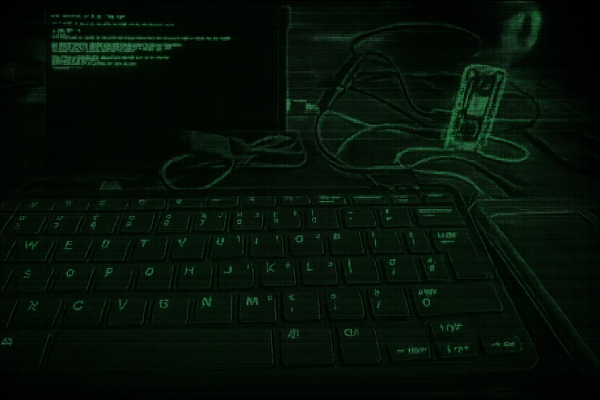
For the past few months, I have been quietly obsessed with building my own minimalist portable computer. My goal was to create something that fits in a pocket, sips power, and brings a healthy dose of Unix nostalgia back into my daily workflow. That vision became the DeckZero-Alpha: a Raspberry Pi Zero-based “decklet,” designed for organization, writing, and coding, all in plain text.
What is a Decklet?
A decklet is my take on the idea of a “cyberdeck,” a term borrowed from science fiction and hacker culture. Where a traditional cyberdeck is a chunky, DIY, all-in-one computer designed for digital adventure and self-reliance, a decklet is a stripped-back, smaller, and much simpler device. The cyberdecks I’ve seen online are very cool, but they involve a lot of techniques that are way beyond my skillset. Lots of laser-cutting, 3D-printing, that sort of thing. My focus was much simpler: text, command-line tools, and portability. Think of it as a cobbled-together command-line notebook: minimalist, quirky, and proudly low-tech—a playful riff on the cyberdeck, built for practical use rather than futuristic fantasy. In my mind, the decklet is a new class of personal computer and the DeckZero-Alpha is the first example of the class
Why Build a Decklet?
Phones are over-featured and distracting, while laptops are heavy and overpowered for simple tasks. I wanted a device that did just enough:
- Organize tasks and calendar in plain text
- Write and edit documents (hello, Vim!)
- Send and receive email
- Run games and experiments in the terminal
- Sync files with Dropbox or similar, even if it takes a bit of effort
- Be fun to use
Hardware: Raspberry Pi Zero at the Core
I settled on the Raspberry Pi Zero 2 W because:
- It is inexpensive, tiny, and energy efficient
- It has enough power for SSH, Vim, mutt, and text-based browsers
- Wi-Fi is built in
- Raspberry Pi OS Lite runs smoothly and boots quickly
I paired the Pi Zero with a small LCD display, a Raspberry Pi keyboard, and a fairly rugged, DIY-friendly case. The result is genuinely portable. I am still searching for the perfect pouch, perhaps something with velcro or zips, to make it even easier to carry.
The DeckZero-Alpha Philosophy
This project was never about building a modern “Pi PDA.”
The DeckZero-Alpha is intended as a deliberate antidote to bloat and distraction:
- No desktop environment, no notifications, and no app store
- Every workflow is plain text, manipulated with reliable command-line tools such as Vim, Bash, AWK, and tmux
- All data is portable and future-proof; for example, markdown for notes, todo.txt for tasks, and calendar.txt for appointments
- Syncing is done manually, either with Dropbox, Syncthing, or the old-fashioned scp command
With this approach, the device lets me focus, tinker, and occasionally impress fellow command-line nerds on the train. (This hasn’t happened yet, but I can dream!)
Quirky Aesthetic: Edgy, Fun, and a Bit Retro
A key part of the DeckZero-Alpha’s charm is its refusal to look “professional.” I have played with ASCII-art logos, neon terminal prompts, and intentionally awkward startup screens. It wears its geekiness openly, serving as both a statement piece and a genuinely useful tool.
What Works (and What Doesn’t)
Successes:
- Vim is a joy to use on this device
- To-dos, calendar, and “workingmemory.txt” all open in split panes with tmux or Vim
- SSH access is available from anywhere
- There are command-line games for downtime
- scp for file transfer works reliably, once networking is set up
Challenges:
- Some cloud services like Dropbox are not straightforward on ARM devices or CLI-only setups
- Web browsing is strictly text-only, though that is part of the appeal
- Power management is basic (non-existant, actually), and adding a proper battery solution would be a good refinement
Next Steps
I want to try different cases and keyboards. Finding the right pouch, bag or case for transport is high on my list. I haven’t really got to grips with text-based email with mutt yet, and ideally I’d like to get a custom domain for a “deckzero” or “decklet” identity. I need to experiment with secure sync options beyond Dropbox, maybe some storage on a private VPN.
Why Bother?
There is something satisfying about building a device that is slow, single-purpose, and a little awkward. In a world of shiny, distraction-filled technology, the DeckZero-Alpha offers a refreshing alternative. For me, it serves as a digital notebook, a Linux playground, and a reminder that sometimes less really is more.